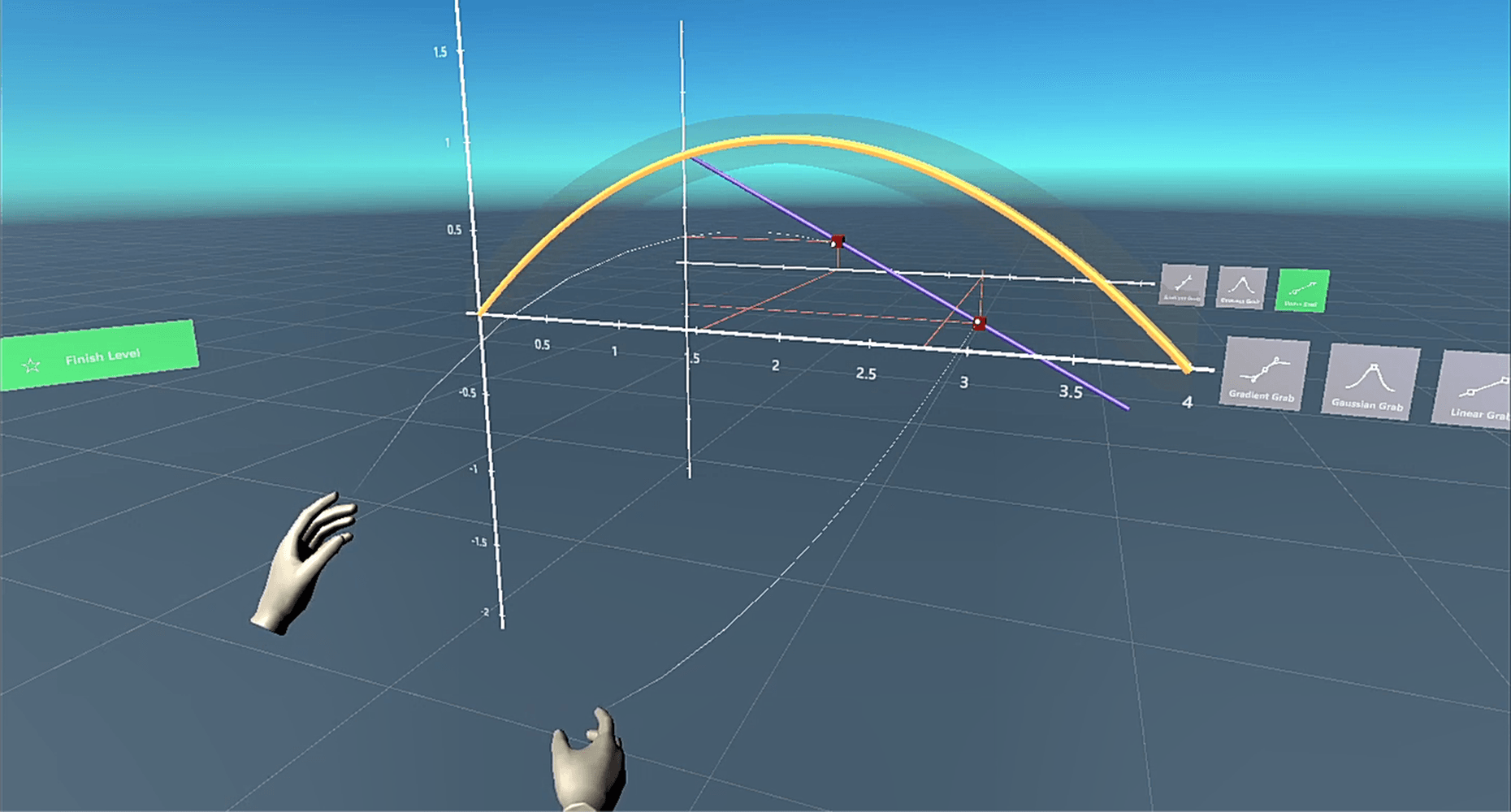Embodied Analysis in Virtual Reality
Virginia Ramp
Master's Thesis, October 2020
Supervisors: Julia Chatain, Dr. Stéphane Magnenat, Prof. Dr. Manu Kapur, Prof. Dr. Bob Sumner

Abstract
When thinking of mathematics, the first thing that usually comes to mind is numbers, formulas and methods to solve problems, as taught by a teacher in a class, while every student sits at their own table and solves exercises. Learning is often focused on sharpening the mind, neglecting the fact that involving the body – for example with meaningful gestures like using one’s fingers to count – can help immensely in the learning process.
With the rise of newer technologies, building and experiencing Virtual Reality environments is becoming more commonplace and affordable every year. Immersive, virtual environments that allow for the user to engage their body meaningfully are an interesting, yet little explored area of research in relation to learning mathematics.
This thesis addresses the development of a Virtual Reality game, designed to convey an intuitive understanding of the mathematical concept of derivatives and integrals. It does so by incorporating meaningful body movements – so-called embodiment – for the users to interact with the game elements. We elaborate on the design and the implementation, as well as on the results found through a qualitative user study.
From the results of this study, we determine the strengths and flaws regarding the usability of our system, as well as its embodiment and educational values. We then compile a list of design suggestions that can be used to further build on our work and that carries value to anyone developing Virtual Reality, embodiment, or mathematical learning games.